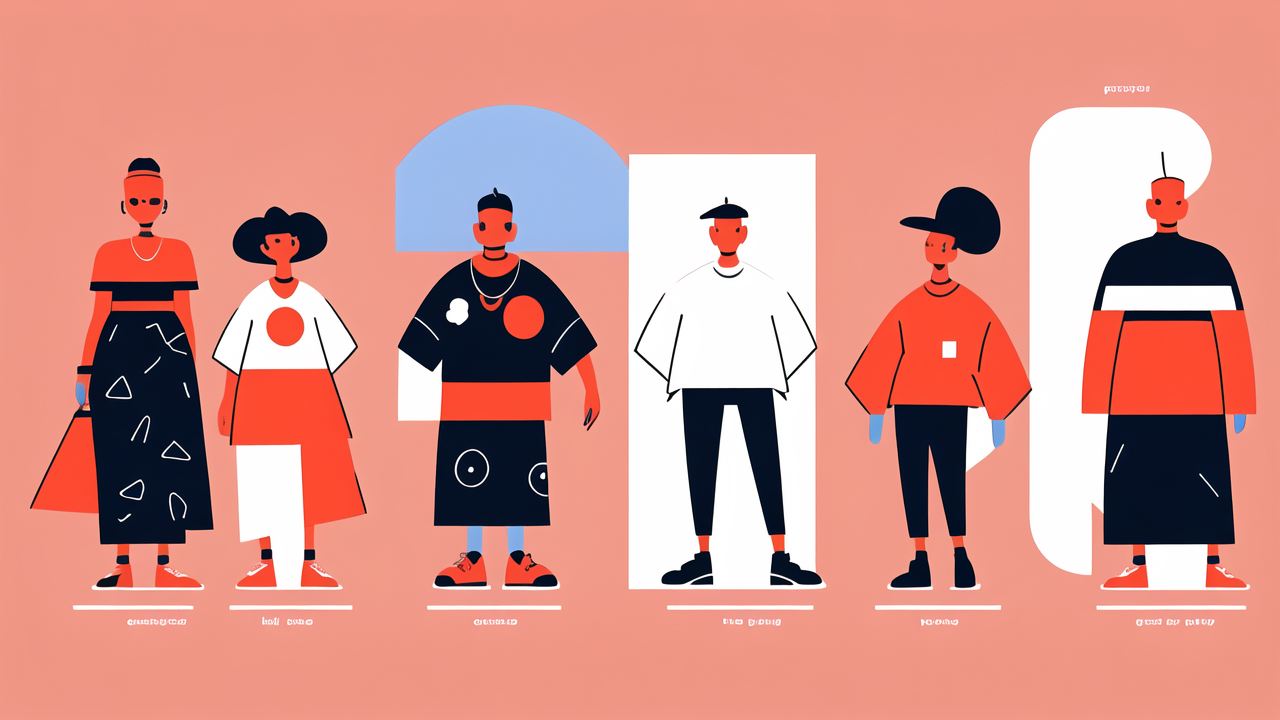The Roots of Hip Hop Fashion: A Brief History
The Evolution of Hip Hop Jewellery
Hip hop jewellery has come a long way since the genre's birth in the 1970s. It started with simple

gold chains and evolved into elaborate pieces. Early rappers wore modest jewelry to show success.
As hip hop grew, so did the bling. By the 80s and 90s, chunky gold chains became symbols of wealth.
Pendants got bigger and more intricate. Diamonds entered the scene, adding extra sparkle. Today,
hip hop jewellery includes grillz, custom pendants, and diamond-encrusted watches. It's not just
about showing off – it's an art form expressing personal style and cultural pride.
Influential Iconography in Hip Hop Accessories
Hip hop accessories often feature powerful symbols. These icons represent the culture's values and
history. Common motifs include:
- Dollar signs: Symbolizing financial success
- Crowns: Representing royalty or being "king" of one's domain
- Religious symbols: Reflecting faith and spirituality
- African imagery: Connecting to cultural roots
- City skylines: Showing hometown pride
These symbols aren't just decorative. They tell stories and carry deep meanings. For example,
Slick Rick's eye patch became his signature look. It turned a medical necessity into a fashion
statement. Run-DMC's Adidas sneakers without laces became an iconic hip hop style. These
accessories helped define the look and feel of hip hop culture.
Designing Your Unique Hip Hop Jewellery Line
Understanding Personal Style in Hip Hop
Creating a unique hip hop jewellery line starts with understanding personal style. Hip hop fashion

is all about self-expression. It's important to find what resonates with you. Some prefer
minimalist designs, while others go for bold, statement pieces. Think about your favorite artists
and what draws you to their style. Consider your own background and experiences. These can inspire
unique designs. Remember, authenticity is key in hip hop culture. Your jewellery should reflect
your true self. Don't be afraid to mix traditional elements with modern twists. The goal is to
create pieces that feel genuine and personal to you.
Incorporating Cultural Elements into Design
When designing hip hop jewellery, cultural elements can add depth and meaning. Draw inspiration
from your heritage or the roots of hip hop culture. African patterns and symbols can create
powerful designs. Consider using materials traditional to your culture. For example, wooden beads
or specific gemstones. Urban landscapes can inspire unique pendants or chain designs. Music
symbols like turntables or microphones make great motifs. Remember to approach cultural elements
with respect. Avoid appropriation by understanding the significance of what you're using. The best
designs tell a story or carry a message. They connect the wearer to their roots or beliefs. This
personal touch sets your jewellery apart in the hip hop fashion world.
Collaborating with Artists for Custom Pieces
Collaborating with artists can take your hip hop jewellery to the next level. Find local artists
or designers who understand hip hop culture. They can bring fresh ideas and unique skills to your
projects. Graffiti artists can create bold, street-inspired designs. Sculptors might craft
intricate 3D pendants. Even musicians can inspire pieces based on their lyrics or album art. When
collaborating, communication is key. Clearly explain your vision and be open to their input. Set
clear expectations about timelines and costs. Remember, these collaborations can lead to limited
edition pieces. This exclusivity can make your jewellery more desirable. It also supports other
artists in the hip hop community, strengthening the culture as a whole.
Marketing and Selling Hip Hop Jewellery in the United States
Leveraging Social Media for Hip Hop Jewellery Brands
Social media is crucial for marketing hip hop jewellery. Platforms like Instagram and TikTok are

perfect for showcasing your pieces. Create eye-catching content that highlights your jewellery's
unique features. Use high-quality photos and videos to make your pieces shine. Engage with your
followers by responding to comments and messages. Collaborate with influencers and artists to
reach wider audiences. Host live sessions to showcase new designs or answer questions. Use
hashtags related to hip hop culture and jewellery to increase visibility. Share behind-the-scenes
content to build a connection with your audience. Remember, consistency is key. Post regularly to
keep your brand in people's feeds and minds.
Building a Community Around Your Jewellery Line
Creating a community is essential for a successful hip hop jewellery brand. Your customers should
feel like part of something bigger. Host events where fans can meet and connect. This could be
launch parties for new collections or pop-up shops. Create a loyalty program to reward repeat
customers. Offer exclusive pieces or early access to new designs for members. Start a blog or
podcast discussing hip hop culture and fashion trends. This positions you as an authority in the
field. Encourage user-generated content by reposting customers wearing your pieces. Support local
hip hop events or artists to show your commitment to the culture. Remember, building a community
takes time and effort. Be patient and genuine in your interactions. A strong community will become
your brand's best advocates.
Navigating Legal Considerations and Authenticity in Hip Hop Jewellery Sales
When selling hip hop jewellery, legal and ethical considerations are crucial. Ensure all your
designs are original to avoid copyright issues. If you're inspired by existing designs, make sure
to create something distinctly different. Be transparent about the materials used in your
jewellery. Clearly label whether pieces are solid gold, gold-plated, or made with other metals. If
using diamonds or gemstones, provide certificates of authenticity. Follow all relevant laws
regarding precious metal and gemstone sales. Consider getting your business and designs
trademarked for protection. Be cautious when using cultural symbols to avoid accusations of
appropriation. If collaborating with artists, have clear contracts outlining rights and
compensation. Remember, in hip hop culture, authenticity is everything. Being honest and
transparent will build trust with your customers and respect within the community.






